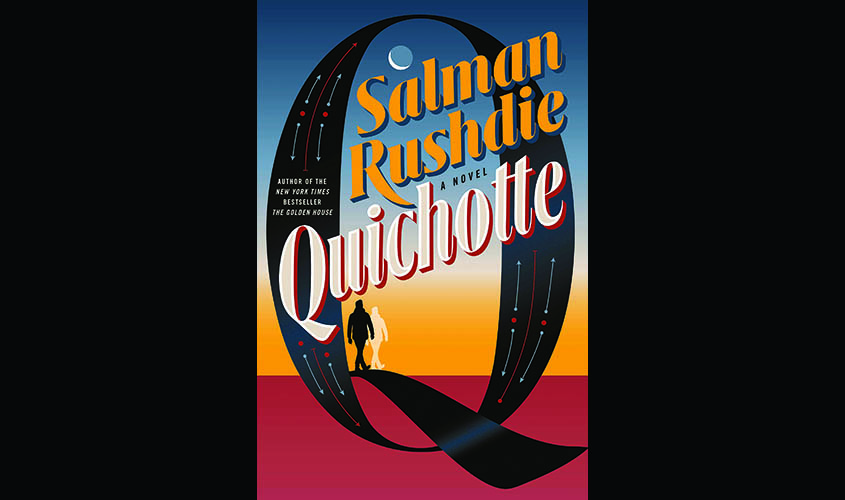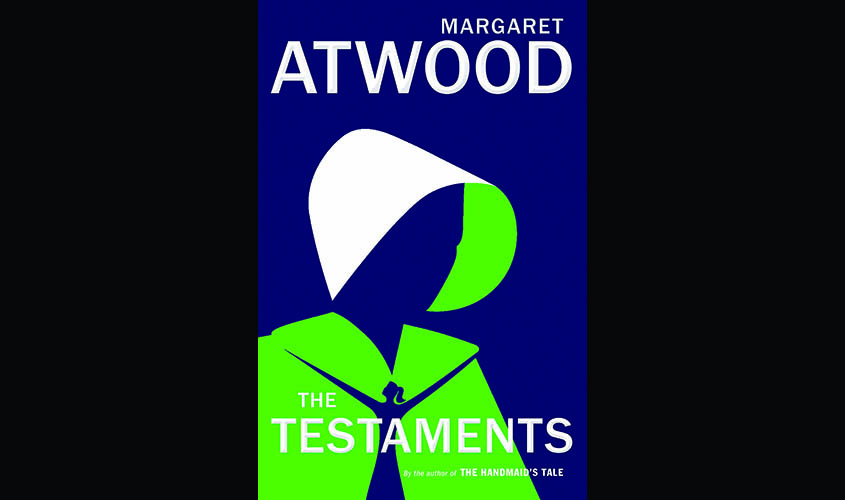Margaret Atwood’s novel The Testaments, the highly anticipated sequel to The Handmaid’s Tale, was announced here on Wednesday as one of the books in the running for the Booker Prize, Britain’s most prestigious literary award.
“A ferocious nondisclosure agreement” prevented the prize’s judges revealing any of the book’s plot, they said in a joint statement announcing the list of 13 competitors. But the novel is “terrifying and exhilarating,” they added. Atwood, whose novel The Blind Assassin won the Booker Prize in 2000, faces strong competition for the award. Other nominated books include Salman Rushdie’s forthcoming Quichotte, about a traveling salesman who drives across the United States, and 10 Minutes 38 Seconds in This Strange World by Elif Shafak, about a prostitute in Istanbul. Little is known about The Testaments, except that it is set 15 years after The Handmaid’s Tale and is narrated by three female characters. Last year, Atwood said in a statement that she wanted The Testaments to explore parallels between her imaginary dystopia — in which women are treated as reproductive serfs — and the current political climate. The list of nominees is dominated by novels inspired by political crises, such as John Lanchester’s The Wall, set on an island surrounded by a concrete barrier to keep rising seas and immigrants out. Mexican author Valeria Luiselli’s Lost Children Archive, about child migrants, has also made the cut. “The brilliance of the writing stirs rage and pity,” wrote Gaiutra Bahadur, in a review of the book for The New York Times.
The nominated books “imagine our world, familiar from news cycle disaster and grievance, with wild humor, deep insight and a keen humanity,” said Peter Florence, the chair of the judges, in a statement. “These writers offer joy and hope.”

Other books on the list are less political, such as Oyinkan Braithwaite’s comic thriller, My Sister, The Serial Killer, about two siblings in Lagos, Nigeria, one of whom has a habit of murdering her boyfriends. It is “a bombshell of a book — sharp, explosive, hilarious,” wrote Fiammetta Rocco in The New York Times. “Only after you turn the last page do you realize that, as with many brilliant comic writers before her, laughter for Braithwaite is as good for covering up pain as bleach is for masking the smell of blood.”
From its inception in 1969 until 2014, the Booker prize was limited to books by writers from Britain, Ireland and Commonwealth countries (plus South Africa and, later, Zimbabwe), but that changed in 2014, when it was opened to works by anyone writing in English. That led to fears it would be dominated by Americans.
In 2016, Paul Beatty’s The Sellout took the prize, and, the following year, Lincoln in the Bardo, by George Saunders, won. Both writers are American. After that, criticism of the rule change grew, and non-American authors complained they were being crowded out. In 2018, a literary society that counts Atwood, Ian McEwan and Zadie Smith among its members demanded the rule be reversed.
The closest this year’s longlist comes to a book by an American writer is Ducks, Newburyport, by Lucy Ellmann, who was born in Illinois, but moved to Britain when she was 13 and now lives in Edinburgh, Scotland.
The nominees will be narrowed down to a shortlist of six that will be revealed on Sept. 3, and the winner, who receives around $62,000, will be announced at a ceremony in London on Oct. 14.
© 2019 THE NEW YORK TIMES

